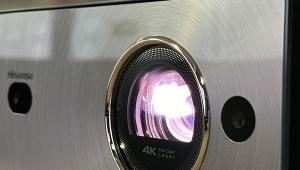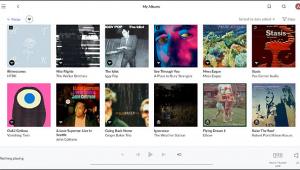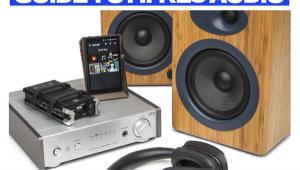I'm pretty old school. Extensive LP and CD library. I have a couple of CD's ripped from HD Tracks downloads and yes, they sound fantastic. My issue is storage. If I acquire a vast catalog of downloaded music in a high resolution format aren't I also needing a great deal of hard drive storage space? Granted it will take up less space than a CD or LP collection but aren't we still talking many many terabytes of data?
Guide To Hi-Res Audio - Music Downloads

Recommended Hi-Res Music Downloads
We asked the three major music labels—Sony, Warner and Universal—to recommend a half-dozen each of their most popular titles exemplary of the quality Hi-Res Audio can deliver. Their selections are below but represent only a small taste of the thousands of hi-res tracks out there that can thrill you with their detail, purity and dynamics. Many online hi-res music stores offer samplers of their best-sounding music and allow you to search by “Best Sellers” to see what’s hot. And recommendations abound at enthusiast Websites, including Sound & Vision’s sister Website AudioStream.com. Whatever genre you seek, you’ll find great hi-res music to feed your passion.
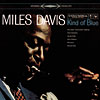 |
Miles Davis: Kind of Blue Sony Music Group/Columbia Legacy, 2013 Genre: Jazz Resolution: 96/24, 192/24 |
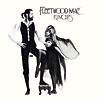 |
Fleetwood Mac: Rumours Warner Music Group/Rhino, 2011 Genre: Rock Resolution: 96/24 |
 |
Lady Gaga/Tony Bennett: Cheek to Cheek Universal Music Group/Streamline-Columbia-Interscope, 2014 Genre: Jazz/Vocal Resolution: 96/24 |
 |
Beach Boys: Pet Sounds Universal Music Group/Capitol, 2012 Genre: Rock Resolution: 96/24, 192/24 |
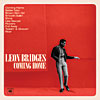 |
Leon Bridges: Coming Home Sony Music/Columbia, 2015 Genre: R&B Resolution: 96/24 |
 |
Chicago: Chicago Transit Authority Warner Music Group/Rhino, 2013 Genre: Rock Resolution: 96/24, 192/24 |
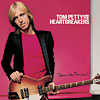 |
Tom Petty: Damn The Torpedoes Universal Music Group/Geffen, 2015 Genre: Rock Resolution: 96/24 |
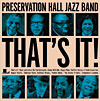 |
Preservation Hall Jazz Band: That’s It! Sony Music/Legacy 2013 Genre: Jazz Resolution: 88/24 |
 |
Lang Lang, Berliner Philharmoniker, Simon Rattle (cond.): Prokofiev: Piano Concerto No. 3, Bartók: Piano Concerto No. 2 Sony Music/Sony Classical, 2013 Genre: R&B Resolution: 96/24 |
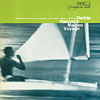 |
Herbie Hancock: Maiden Voyage Universal Music Group/Blue Note, 2012 Genre: Jazz Resolution: 96/24, 192/24 |
 |
Bob Marley & The Wailers: Legend Universal Music Group/Island, 2012 Genre: Reggae Resolution: 96/24, 192/24 |
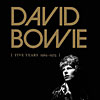 |
David Bowie: Five Years (1969-1973) Warner Music Group/Parlophone UK, 2015 Genre: Rock Resolution: 96/24, 192/24 |
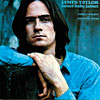 |
James Taylor: Sweet Baby James Warner Music Group/Rhino, 2013 Genre: Pop Resolution: 96/24, 192/24 |
 |
Sara Bareilles: The Blessed Unrest Sony Music/Epic 2013 Genre: Pop Resolution: 88/24 |
 |
The Band: Music From Big Pink Universal Music Group/Capitol, 2013 Genre: Rock Resolution: 96/24, 192/24 |
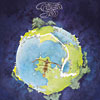 |
Yes: Fragile Warner Music Group/Rhino, 2002 Genre: Rock Resolution: 96/24 |
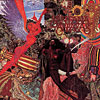 |
Santana: Abraxas Sony Music/ Columbia Legacy, 2013 Genre: Rock Resolution: 88/24, 176/24 |
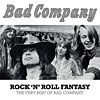 |
Bad Company: Rock ‘N’ Roll Fantasy: The Very Best Of Bad Company Warner Music Group/Rhino, 2015 Genre: Rock Resolution: 96/24 |
Along with the major labels, independent audiophile record companies and specialty music stores o er a wealth of unique and spectacularly well-recorded hi-res music. Here’s a small sample worth checking out.
 |
HDtracks.com Hi-Res Experience Sampler Chesky Records, 2015 Genre: Various Resolution: 96/24 Available free at hdtracks.com/the-hdtracks-hi-res-experience. |
 |
The New Appalachians: From the Mountaintop Chesky Records, 2015 Genre: Traditional Song, Folk Resolution: 96/24 Track: “Wayfaring Stranger” Available on HDtracks Sampler |
 |
Mangue Sylla & the All Star Drummers of Guinea: Dunnun Kan Chesky Records, 2015 Genre: World, African (Binaural+) Resolution: 96/24, 192/24 Track: “Doun- dumba” Available on HDtracks Sampler |
 |
Alexis Cole: A Kiss in the Dark Chesky Records, 2014 Genre: Jazz, Vocal (Binaural+) Resolution: 96/24, 192/24 Track: “Ain’t We Got Fun” Available on HDtracks Sampler |
Primephonic.com is offering a one-time 20% discount to our readers through December 31, 2015. Use voucher code SNV2FDL during checkout.
 |
Dvorak & Lalo, Cello Concertos: Johannes Moser, PKF - Prague Philharmonia, Jakub Hrůša Pentatone, 2015 Genre: Classical Resolution: 96/24 |
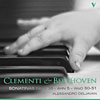 |
Clementi & Beethoven, Piano Sonatinas: Alessandro Deljavan OnClassical, 2015 Genre: Classical Resolution: 88/24 |
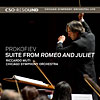 |
Prokofiev, Suite from Romeo & Juliet (Live): Chicago Symphony Orchestra, Ricardo Muti OnClassical, 2014 Genre: Classical Resolution: 96/24 |
 |
The Film Music of Miklós Rózsa: Rumon Gamba, BBC Philharmonic Chandos, 2014 Genre: Classical Resolution: 96/24 |
 |
iTrax.com Ultra HD Audio Sampler AIX Records, 2014 Genre: Various Resolution: 96/24 Available free at iTrax.com; enter coupon code CES_2015 on checkout. |
 |
Laurence Juber: Guitar Noir AIX Records, 2007 Genre: Fingerstyle Guitar, Contemporary Guitar, Acoustic Blues Resolution: 96/24 Track: “Strawberry Fields Forever” Available on iTrax Sampler |
 |
Zephyr: Voices Unbound AIX Records, 2007 Genre: Contemporary Vocal, A Cappella Resolution: 96/24 Track: “Now Is The Month of Maying” Available on iTrax Sampler |
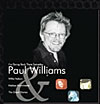 |
Paul Williams (feat. Willie Nelson): I’m Going Back There Someday AIX Records, 2007 Genre: Rock/Pop, Americana, Vocal Resolution: 96/24 Track: “Rainbow Connection” Available on iTrax Sampler |
- Log in or register to post comments


Yes, but that is cheap. I have two 3TB drives (one is physical backup). They're under $150 these days.

Yes hard drives are selling at bargain basement prices these days. The issue for me is I would need an entire forest of them to equal several thousand CD's worth of downloads. These files are BIG!

...and availability, for that matter.
If you're going to have nothing but disk-hungry, DSD 128 files, then you'll get only roughly 250 albums per 1 TB of disk space.
(See http://www.crutchfield.com/S-f83gBGf7jCd/learn/high-resolution-audio-gui...)
It's not like every digitized album is available in DSD 128.
I recently ripped 400+ CDs at 44.1/16 and it only cost me 138GB worth of space.

As noted above, you can fit about 250 high-res albums on 1TB...a 12TB WD My Book could hold almost 3000 high-res albums. Buy a 2nd one for backup purposes. True, that much storage is no longer cheap ($450x2).

Didn't realize hard drives had gotten that big. As you say not cheap but definitely doable if I'm going to go whole hog into this. Thanks.

They're not QUITE that big...the 12TB My Book uses (2) 6TB drives in RAID 0 or JBOD. You will need Windows 7 or more recent.

I'm a little surprised by the inference that a USB DAC is necessary. Most readers here will have a receiver with an HDMI input capable of handling multi channel high res audio.

...the server and the renderer - BOTH have to support the resolution that's been encoded and decoded. Some DLNA server solutions re-sample the files to 44.1 or 48 kHz, and some renderers can only receive up to a certain frequency via DLNA. Check your manuals FIRST, to (re)set your expectations.

Yes, my receiver can only handle high-res stereo tracks and not 5.1. However, my Oppo BD player can accept high-res 5.1 DLNA stream from Foobar2000 and transmit over HDMI to receiver. Or I can plug in laptop directly to receiver over HDMI with Foobar2000.

...you're an Apple fanboy who wants to overcome the 96/24 stock soundcard limit.

..."The Apple Fanboy's Guide to Downloadable Hi-Res Audio (and how to overcome the limitations of the Apple ecosystem)."
My goodness - outside of the FAQ's and Glossary, I don't think SACD was mentioned anywhere else... There sure were quite a number of iTunes mentions, though!

Quote "Hi-Res Audio tracks capture the details, instrument and vocal timber and textures" The only wood I want to hear is that of the speakers, I would much rather hear the timbre of the voices.
There is no mention of the provenance of the recordings, if I re record a cassette tape to 192/24 does it then become a Hi Res Music file?
The whole chain from artist's performance right through to the end product should be Hi Res, not just the final container file

there's been some advancement here on information of provenance, but a lot of it is private or lost.
in the hands of mastering 'masters', anything they are given can be taken up to 24/192 and be worthy of a listen. so yes, your statement is correct. it's the new hi-res master if they bothered.
if it's just up sampled it's a scam. no one is advocating that or selling it. when it sneaks through it's pulled and treated as a mistake. pono even offers a lifetime res upgrade.
most things aren't coming from cassette, of course. or 16/44, there's no point. if it's locked at 16/44 when recording it probably is, i don't think any label is in a hurry to get it to 24bit.
it's the old tapes and the new releases that are key here. the old tapes can be digitized again at 24/192, and then sold to consumers finally. the new sessions can be distributed that way, effectively giving the mp3 people their 10% version but still having an outlet for selling the full version.

Hi-res is all well and good, but I have not yet heard a major difference that would result in people like me - you know, regular people who have to worry about oh, you know, paying rent and utilities and buying food and shelter - spending a fortune to replace all the CDs we have with downloaded hi-res versions that usually cost between $25-$30 a pop. Hey, I can find great Blu-ray discs on the "A" site and other online retailers for less than $10, but if I had to pay 3 times that to download a hi-res version of the movie, I would tell them to go scratch. Why should hi-res audio be any different.

I'll admit...I have a high frequency hearing cutoff at around 4KHz (both ears), but I still enjoy my music and can have meaningful conversations. I'll also admit purchasing a Sony HAP-S1, HRA player that I like, very much.
Unfortunately, I disagree with most of the hype about HRA. Of the "scientific" studies I've read, all indicate that the (average) human ear simply cannot discern a difference between CD quality audio and HRA. The arguments against HRA are impressive, from the inability of the human ear to hear frequencies in excess of 20KHz, to the problem with the ability to listen (without extreme pain) to audio levels that span a 24dB range (or greater).
This HRA guide reproduces (again) an audio "waveform" that has been shown to be totally inaccurate, in the attempt to relate to the listener the difference between analog and digital audio. I don't know why this information continues to be reproduced, other than to convince non-technical types of the dubious differences between the two mediums. If it weren't for the fact that I work in the field of electronics and have kept abreast of the technological changes, since the tape and vinyl era, I, too, might have been sucked in by this "sleight of hand".
On a similar note...while I might discern the difference between a long run of 28 gauge speaker wire, versus 14 gauge and likely notice a difference of 64Kbps sampled audio, versus 44.1Kbps, you cannot convince me that I will hear the difference between plain copper and solid gold wires of the same gauge. You also would be hard pressed to convince me of the audio improvements between 44.1K and 96K sampled recordings. The differences are just too slight.
I do agree that CD quality audio is WAY better than either vinyl or tape...Hell, I grew up in the 60's and 70's and have heard it all. I also agree that HDTV (on a larger screen) beats the crap out of old 420 line video. Those are major differences that are easily discerned by the human ears and eyes...even ones as old and decrepit as mine. What I have been entirely unable to realize, however, is a noticeable difference in HRA over my CD collection. It just ain't happenin' here.
My final comment is, if you are looking to move up to HRA equipment and files...get your hearing checked, first. If your hearing qualifies as average to lower than average...save your money, as you will be unlikely to appreciate what you will be spending your hard earned money on.
Oh...I mainly purchased the Sony to: a. Have a desktop player with all my music onboard and b. To prove or disprove the HRA hype. I'm good with a., but b. has totally failed to convince me.

The discussion of Radio Randy hit home with me. I love my music but suffer similar hearing difficulties (too much loud music in the 60's and 70's) I'll stick with my vinyl, CD's and occasional iTunes download. Thanks for the article.

First its our girlfriends and wife's convincing us not to buy any audio-video gear cause they can't tell the difference. Now we are going in to the doctor's office and asking his advice.? If you love music and your hearing is bad (get a hearing aid)! your bound to start hearing everything again.(which could save your life !) The problem is that most of us don't really listen. If the average person sat down with a blind person and they hear the same track.. that's because their auditory senses are developed. The other problem that many of us might be suffering from is called (auditory processing disorder)its a glitch in the brains ability to filter and process sounds. If you've never played an instrument and done any studio work you ear is not developed. Unless your gifted. But really the most important thing is that everybody listens to music, in what ever format. The more you listen the better you get at listening. Get in your favorite chair, close your eyes and try to pick out every instrument. you will start hearing things you didn't know was there. Listen to Hi-res,non Hi-res, different volumes, different amps,speakers ect. That's all part of loving the gift of MUSIC !

